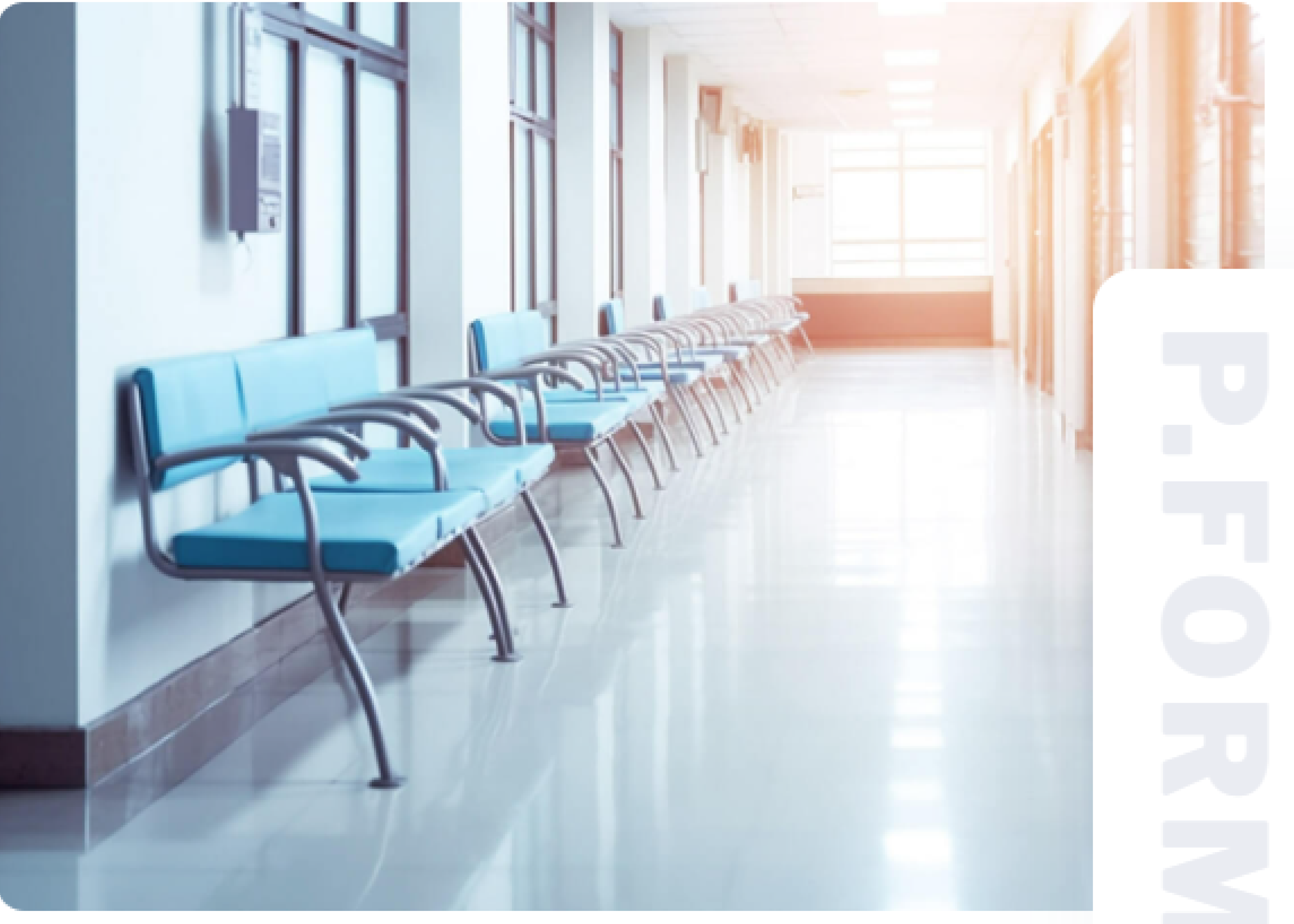Explore a wide range of medical services designed to meet all your healthcare needs
| Department | Consultant Name | Week Days | OPD Timing |
|---|---|---|---|
| Medicine | Dr Prashant Hiwale | Monday to Friday (Availabel 2nd and 4th Saturday) | 12:00 pm to 3:00 pm |
| Dr.Akshay Dhamne | Monday to Friday (Availabel 1st, 3rd and 5th - Saturday 12 pm to 3 pm) | 02:30 pm to 6:00 pm | |
| Cardiology | Dr Pratik Wadhokar | Monday to Saturday | 11:00 am to 01:00 pm |
| Orthopedics | Dr. Ajay Dombale | Monday to Friday (Availabel 1st and 3rd) (Tuesday off) | 04:00 pm to 05:30 pm |
| Dr Pravin Waghmare | Monday to Friday (Availabel 2nd and 4th Saturday) | 12:30 pm to 02:30 pm | |
| Dr. Tushar Pisal | Monday | 12:00 pm to 01:30 pm | |
| Arthroscopy | Dr Rajiv Munde | Friday | 04:30 pm to 05:30 pm |
| Gynecology | Dr. Kishor Gosavi | Monday to Saturday | 12:00 pm to 02:00 pm |
| Paediatrics | Dr Vijaykumar Kathale | Monday to Saturday | 11:30 am to 02:00 pm |
| Dr Swapnil Kolhe | Monday to Friday | 03:00 pm to 05:00 pm | |
| General Surgery | Dr. Rahul Kashide | Monday to Friday | 05:30 pm to 07:00 pm |
| Dr. Pavan Dharurkar | Tuesday, Wednesday, Friday and Saturday | 11:00 am to 01:00 pm | |
| ENT | Dr. Manoj Deshmukh | Tuesday and Thursday | 12:00 pm to 01:00 pm |
| Dr Santosh Mane | Wednesday | 04:00 pm to 05:00 pm | |
| Dr Nimita Dubey | Monday and Friday | 11:00 am to 12:30 pm | |
| Opthalmology | Dr. Sanjali Wadhokar | Monday, Wednesday and Saturday | 11:00 am to 01:00 pm |
| Urology | Dr. Nandkishor Raut | Monday, Wednesday and Friday | 10:00 am to 12:00 pm |
| Dermatology | Dr. Shrikant Kogekar | Tuesday | 01:00 pm to 02:00 pm |
| Saturday | 12:00 pm to 03:00 pm | ||
| Neurosurgery | Dr Abhijeet Ghangale | Monday, Wednesday and Friday | 02:30 pm to 04:30 pm |
| Dr Mohnish Dighe | Tuesday, Thursday, and Saturday | 10:00 am to 12:00 pm | |
| Neurology | Dr Paresh Babel | Monday and Thursday | 04:30 pm to 06:00 pm |
| Dr Chinmay Kumbhar | Wednesday and Friday | 02:00 pm to 04:00 pm | |
| Nephrology | Dr. Gajanan Kale | Monday, Wednesday and Friday | 12:00 pm to 01:00 pm |
| Respiratory Medicine | Dr. Sahebrao Toke | Monday to Saturday (Tuesday off) | 01:00 pm to 02:00 pm |
| Dr Karan Deshmukh | Monday to Friday | 11:00 am to 01:00 pm | |
| Oncology | Dr. Ravikumar Wategaonkar | Monday | 02:00 pm to 03:00pm |
| Oncology Surgeon | Dr. Jaipalreddy | Thursday | By Appointment |
| Dr Ashish Bangar | Tuesday and Thursday | 11:00 am to 01:00 pm | |
| Cardiology | Dr Pratik Wadhokar | Monday to Saturday | 11:00 pam to 01:00 pm |
| Dr. Ishwar Zanwar | Monday to Saturday (Friday Off) | 11:00 am to 12:00 pm | |
| Dr Digvijay Nalawade | Monday to Saturday | 04:30 pm to 05:30 pm | |
| Dr Chandrakant Upadhyay | By Appointment | By Appointment | |
| Cardiothoracic Surgery | Dr Ajit Jejurkar | By Appointment | By Appointment |
| Plastic Surgeon | Dr Somnath Karad | Tuesday, Thursday and Saturday | 01:00 pm to 03:00 pm |
| Physiotherapy | Dr Avinash Bhakt | Monday to Saturday | 11:30 am to 04:00 pm |
| Dr Ankita Shinde | Monday to Saturday | 11:00 am to 05:00 pm | |
| Vascular | Dr Hemant Choudhari | Thursday (only 4th) | 01:30 pm to 03:00 pm |
| Vascular Surgeon | Dr Deepak Patil | By Appointment | 01:30 pm to 03:00 pm |
| Painclinic | Dr Anant Suryawanshi | Monday to Saturday | 12:00 pm to 02:00 pm |
| Anaesthesiology | Dr Pravin Jadhav | Monday to Saturday | 03:00 pm to 06:00 pm |
| Dr. Sridharan Sai Raghavendran | Monday to Saturday | 08:00 am to 05:00 pm | |
| Dietetics | Ms. Roshani Solanki | Monday to Saturday | 12:00 pm to 02:00 pm |
| Ms. Gauri Devkar | Monday to Saturday | 02:00 pm to 04:00 pm | |
| Gastroentroloy | Dr Adeshkumar Andhale | Monday, Wednesday and Friday | 02:30 pm to 04:30 pm |
| Surgical Gastroentrology | Dr Nikhil Jillawar | By Appointment | By Appointment |
| Audiologist & Speech Therapist | Mrs Trisha Inamdar | Monday, Wednesday and Friday | 09:00 am to 12:30 pm |
| Maxillo Facial & Oral Surgery | Dr Nakul Parasharmi | By Appointment | By Appointment |
| Clinical Oncologist & Radiation Oncologist | Dr Jyoti Mehta | Every Tuesday | 02:00 pm to 03:00 pm |
| Radiation Oncologist | Dr Gaurav Jaswal | Every Tuesday | 02:00 pm to 03:00 pm |
| Clinical Hematology | Dr Sarang Waghmare | Every Tuesday | 02:00 pm to 03:00 pm |
| Dr Suraj Goyanka | Every Tuesday | 02:00 pm to 03:00 pm | |
| Radiology | Dr Vaibhav Shah | Monday to Saturday | 11:00 am to 05:00 pm |
| Dr Sandeep Bendale | Monday to Saturday | 08:30 am to 10:30 am | |
| Interventional Radiology | Dr Kiran Naiknavare | By Appointment | By Appointment |

